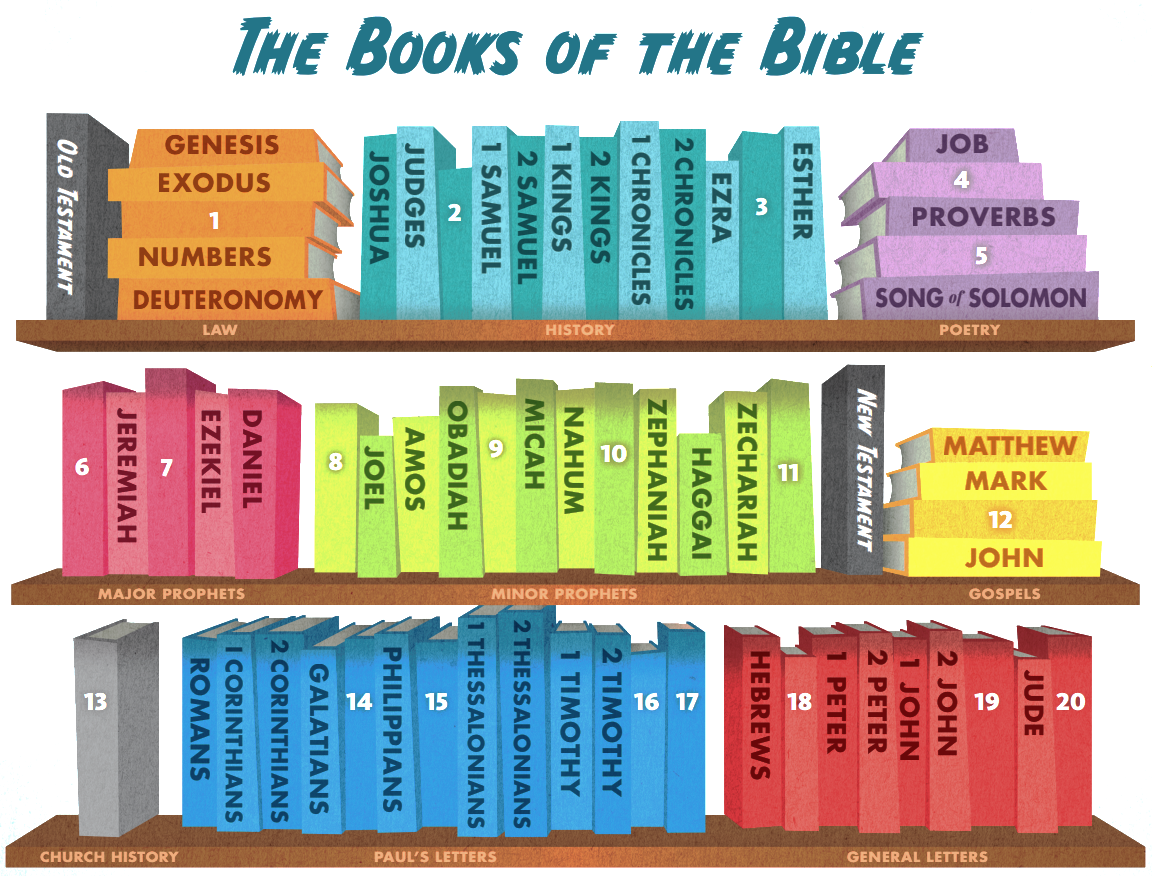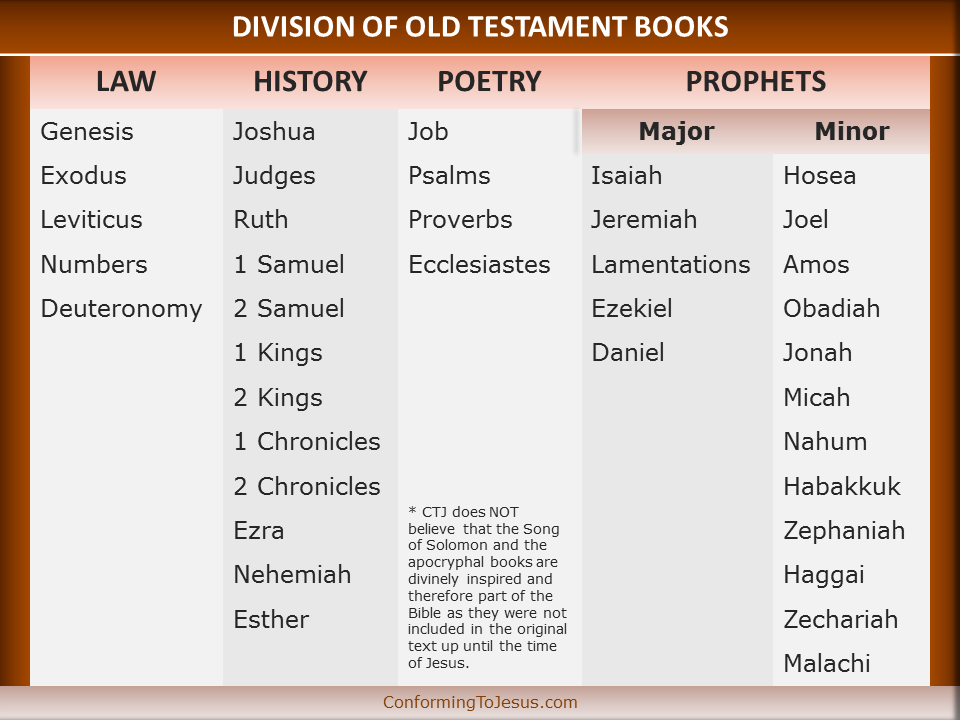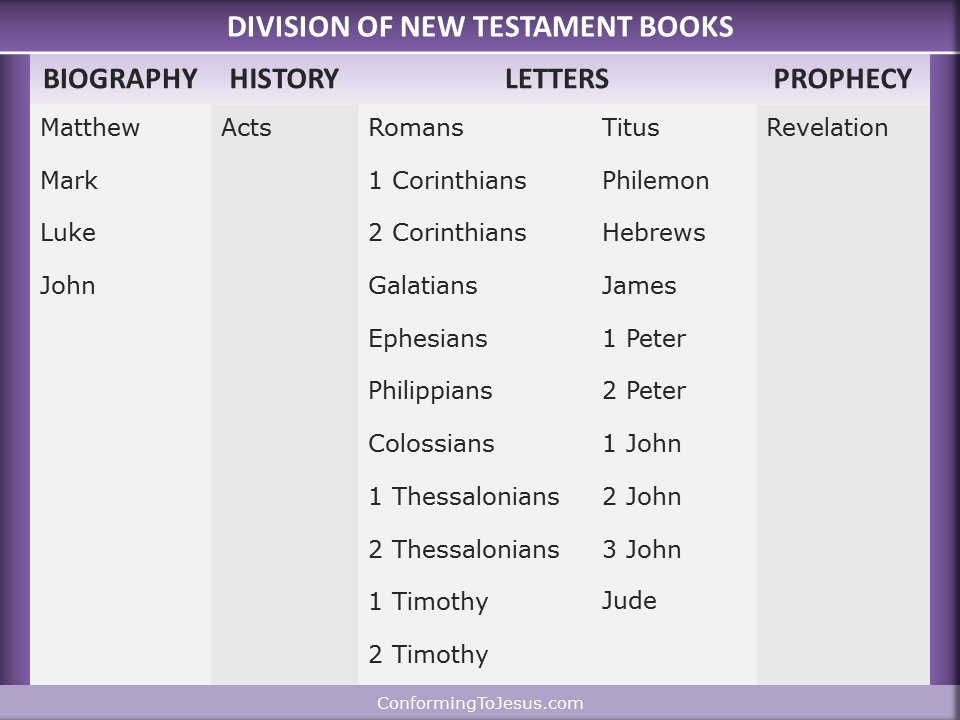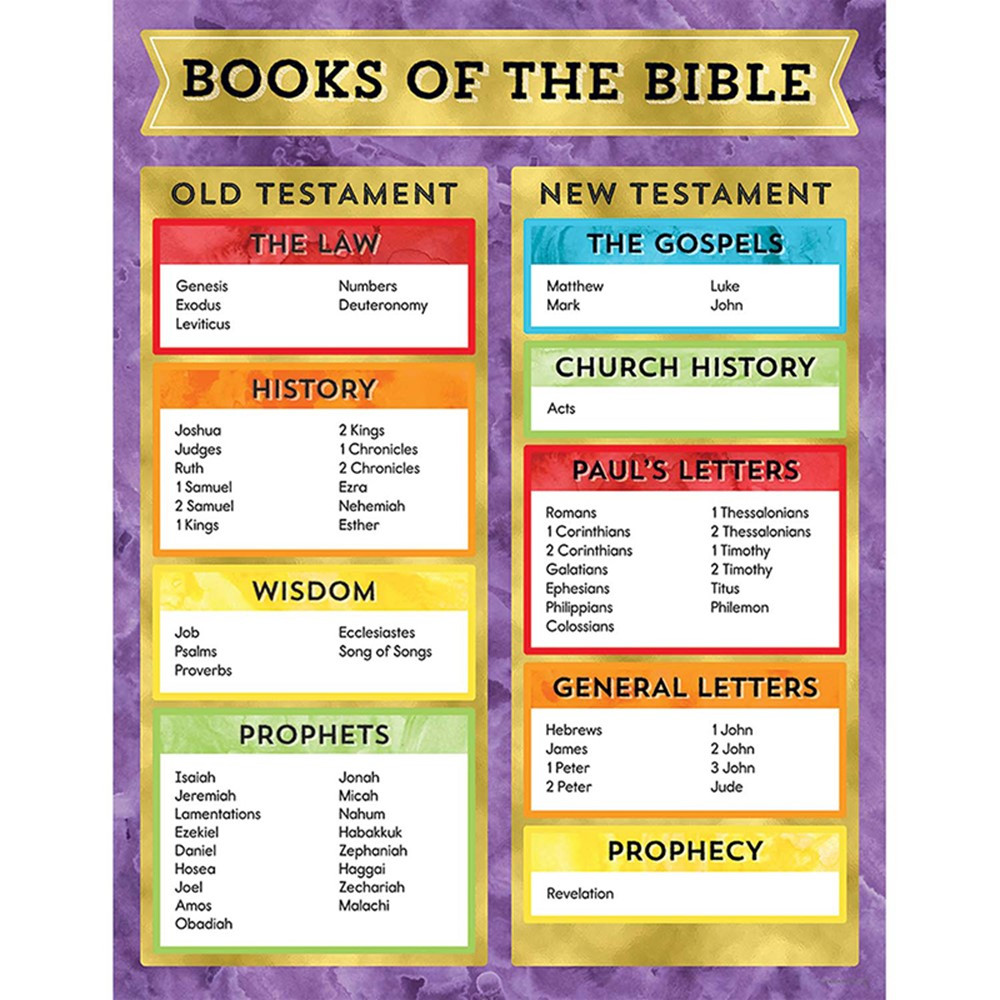
Let me draw to your attention
The order of the Old Testament books,
The focus is on two orders in particular
And I encourage you, take a look.
Law, History, Wisdom/Poetry,
Major and Minor Prophets,
These are the main classifications of the OT
That we traditionally get.
The traditional order is ingrained
Unlike the second which is chronological,
But whichever order we consider,
An understanding is critical.
Whether traditional or chronological
The first seven books are the same:
Genesis to Judges I mean
So first, let me make this plain.

1440-1400 B.C.
Genesis #1 Genesis #1
Exodus #2 Exodus #2
Leviticus #3 Leviticus #3
Numbers #4 Numbers #4
Deuteronomy #5 Deuteronomy #5
1440 – 1400 B.C.
Joshua #6 Joshua #6
Judges #7 Judges #7
The first five books are the Toro
In these books we find the Law,
Moses, Joshua and Judges led Israel
Though not without their flaws.
The chronology of these seven books
Spreads from 1440-1000 B.C.
Ruth or the Psalms will follow next
Depending on what the order be.
1000-586 B.C. (pre-exile – mid-exile)
Traditionally Psalms is the 19th book
But chronologically, it is # 8
This shifts Ruth down to book # 9
Where traditionally it is at # 8.
Chronologically follow thereafter,
1st and 2nd Samuel,
Then Job, Proverbs and Ecclesiastes,
And the Songs of Solomon.
Traditionally this is different
As we take the next seven books,
They are 1st and 2nd Samuel, 1st and 2nd Kings
1st and 2nd Chronicles and Ezra, the 15th book.
From the Psalms to the Songs of Solomon
Is a period of sixty-nine years
Which makes sense chronologically speaking
In the order these books appear.
Period of Rehoboam to Hezekiah (931 – 686 B.C.)
Let’s stay with the chronological order
As we view the next seven books,
I am sure that up to this point
You are having an enlightened look.
Isaiah, Hosea, Joel and Amos
Followed by Obadiah, Jonah and Micah,
Instead of Nehemiah, Esther, Job and Psalms
Proverbs, Ecclesiastes and Songs of Solomon.
Period of Hezekiah to the exile (686 – 586 B.C.)
Enter Nahum, Habakkuk and Zephaniah
Instead of Isaiah, Jeremiah and Lamentations,
1st and 2nd Kings, 1st and 2nd Chronicles
Instead of Ezekiel, Daniel, Hosea and Joel.
Jeremiah, Lamentations, Ezekiel, Daniel
Instead of Amos, Obadiah, Jonah and Micah,
Thirty-three books we have so far covered
The next six is Ezra to Malachi.
516 – 400 B.C. (post-exilic)
Ezra, Nehemiah and Esther
Rebuilding the temple and repairing the walls,
Haggai, Zechariah and Malachi
Chronologically, that accounts for 39 in all.
Nahum, Habakkuk and Zephaniah
Haggai, Zechariah and Malachi,
These six complete the traditional order
On this information we can all rely.
Chronology in bold, traditional in light
Now you can go back and get it right.
For sure, you would recognize as I have,
Bible study is a delight.
The Old is the New concealed,
And the New is the Old revealed,
With this in mind, let’s move into the New
And reveal the once concealed.
That Christ is the Supreme Marker
There should be no dispute,
That he determines the entirety of time
Let us not refute.

Let me draw to your attention
The order of the New Testament books,
The focus is on two orders in particular
And I encourage you, take a look.
Traditionally we have the Gospels
Then the Acts of the Apostles,
Noteworthy is the book of Revelation
Preceded by the Epistles.
Some place this period
Around 40 – 68 A.D.
And this, for the most part is confirmed
By secular history.
All of the Messianic prophecies
Were fulfilled in the New,
The Gospels and the Acts of the Apostles
Assure us of this view.
In the Chronological and traditional
Matthew is placed at #40
This period is around 40 – 45 A.D.
Which excludes Mark, Luke and John.
45 -50 A.D.
Following is the chronological order
For the next six books
And the traditional order by comparison,
Take a careful look.
1st Thessalonians #41 Mark #41
2nd Thessalonians #42 Luke #42
1st Corinthians #43 John #43
2nd Corinthians #44 Acts #44
Romans # 45 Romans #45
Luke #46 1st Corinthians #46
50 – 55 A.D.
The next ten books are interestingly divided
Take a look at the position of the Acts,
Remember, grouping is traditional
But chronological is the timing fact.
Galatians #47 2nd Corinthians #47
Ephesians #48 Galatians #48
Philippians #49 Ephesians #49
Colossians #50 Philippians #50
Philemon #51 Colossians #51
Acts #52 1st Thessalonians #52
1st Timothy #53 2nd Thessalonians #53
2nd Timothy #54 1st Timothy #54
Titus #55 2nd Timothy #55
Hebrews #56 Titus #56
55 – 60 A.D.
James and Jude before Philemon and Hebrews
In the period 55 - 60 A.D.,
Two more differences in these orderings
That chronologically and traditionally we see.
James #57 Philemon #57
Jude #58 Hebrews #58
60 – 68 A.D.
Finally, we come to the last eight books
It is a long way from the start,
And still the lists are so varied here,
Compare the positions of the book of St Mark.
Traditionally set at #41
But chronologically set 20 positions down,
The last before all of John’s five books
Is an eyeopener that is rather sound.
1st Peter #59 James #59
2nd Peter #60 1st Peter #60
Mark #61 2nd Peter #61
John #62 1st John #62
1st John #63 2nd John #63
2nd John 64 3rd John #64
3rd John #65 Jude #65
Revelation #66 Revelation #66

So, here we have the sixty-six books
Comprising the Old and the New
With significant differences in their ordering
Re the chronological and traditional view.
For prophetic and historical enquiry
The chronological order is the better,
However, for literary giants and dramatists,
It’s better they choose the latter.
Whether chronological or traditional
The Bible is its own best source,
Use a Biblical text to explain another
And make it your primary reading resource.
Stewart Russell © September 13, 2021
No comments:
Post a Comment